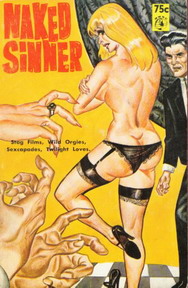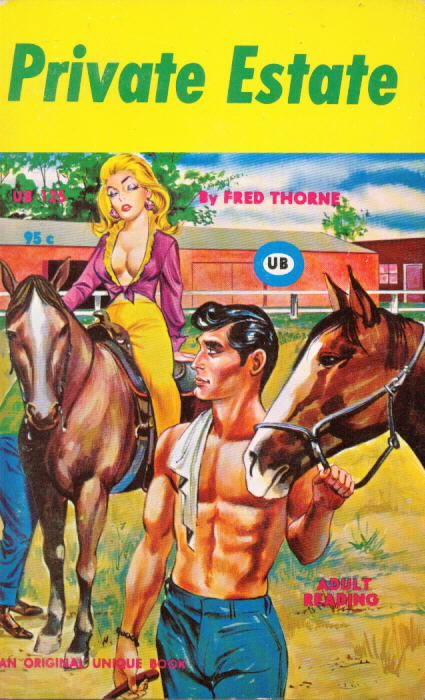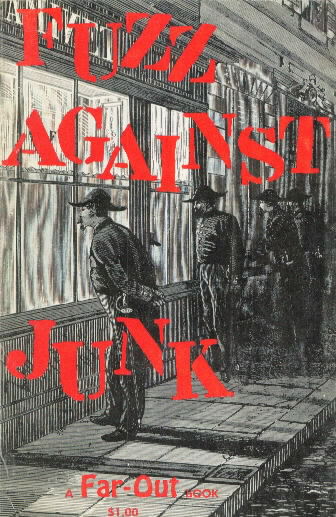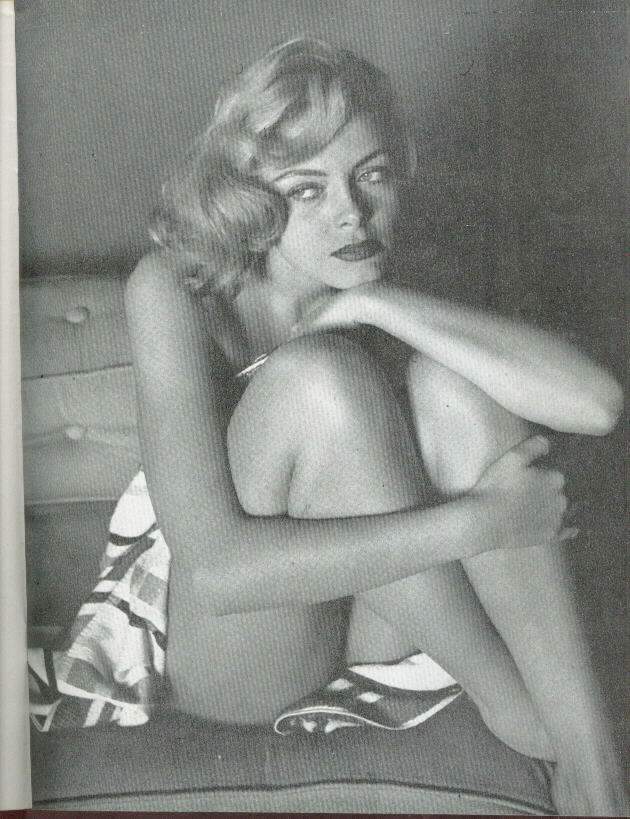|
|
 |
 |
 |
 |
 |
|
|
|
|
|
|
|
|
|
 |
 |
 |
 |
 |
|
|
|
|
|
|
|
|
Artists And the great lensmen as well! New titles will be added as they become available. |

Born in 1919, died in 1998, Bill Ward was a natural artist, who naturally was drawn to draw women from an early age. After a brief career in comics, Ward settled comfortably onto the throne as the King of Post-War Pin-Up Artists from whence he reigned until his passing less than a decade ago. His was a unique blend of All-American commercial art with the all the powers of eroticism -- dark and light. |

Gene Bilbrew (born 1923, died 1974) was also known by his name-spelled-backwards pseudonym "Eneg." Bilbrew had an incredibly powerful presence on the page -- with a distinct shaping to the muscles, a specific cruelty of the eyes, and a uniquely detailed vision of the darkness of forbidden sexuality. After a short stint as a legit comic-book illustrator in NYC in the early 1950s, he pioneered the Post-War world of Fetish illustration -- working for Irving Klaw, bringing to life Lenny Burtman's EXOTIQUE and creating the most lurid paperback covers of the 60s and 70s. He lived close to the life he depicted -- and regrettably died hooked on heroin in back of an adult book shop where he was living. |

Robert Bonfils is perhaps the greatest of all paperback illustrators -- emerging from Chicago in the mid-1950s, working first for the Playtime and Merit booklines and eventually taking over for Harold McCauley as the Art Director and main contributor of cover art for the extensive Greenleaf publishing empire. Bonfils was born in Kansas City, studied alongside Jackson Pollack under Thomas Hart Benton and has produced a body of brilliant artwork for over five decades. |

Eric Stanton was among the original triumverate of young NYC Fetish artists (Bilbrew, Stanton and Ward) who drifted from legit comic work to illustrate for the sexually adventurous publishers of the late 50s, early 60s. Stanton came in to world of the Nutrix, Mutrix, Selbee Publications at the request of Bilbrew and stayed on for the First Niter/After Hours books as well. Branching off in the mid-to-late 60s, Stanton began his own mail-order Fetish Art business (Stantoons) with only an occasional work-for-hire commercial project therafter. But his privately published Stantoons art was both voluminous and excellent. Stanton passed away quite recently but not before enjoying the company of Fetish photographer/writer Eric Kroll, who recounts their friendship (along with biographical notes) in his fine Taschen book THE ART OF ERIC STANTON. |

Fred Fixler is a graphic artist living in Southern California, whose early-to-mid-1960s cover paintings for the Brandon House book series represents a high-point in paperback cover art. His subdued color palette and graceful rendering of the female form in classic mid-century settings conjured a sense of quiet drama and moody seductiveness that was unique in its effectiveness. |

Douglas B. Weaver worked through an artists's agency for a variety of key paperback publishers throughout the 1960s, beginning with Paragon Books and Epic Books in 1961, and later PEC or Publishers Export Company, with whom he is most often associated. His cover paintings were vibrant and enormously appealing -- with a winning sense of color and composition that engages the viewer on all levels. I would love to see some orginal paintings, because even the reproductions spark fire after almost 40 years! Fortunately, Douglas Weaver is presently living and painting in New Mexico, and may one day offer his thoughts and experiences in the world of the early 60s commercial art scene. |

Most often seen on the Saber and Tropic book covers, Bill Edwards also contributed mightly to the interior pages of many, many Parliament/American Art Mens magazines. |

For some time, the gentle beauty of Elaine Duillo's women was confused with the graceful sexiness of Fred Fixler's women, but here you can see the difference. Check in on the work of both Elaine Duillo and her husband, illustrator John Duillo. |

A giant among paperback cover artists, Robert McGinnis' work appeared in select mens magazines and found itself gracing the cover s of a couple sleaze books courtesy of some nefarious book pirate publishers! |

Harold McCauley made his bread and butter doing pulp mag covers and illustrations throughout the 1950s, such as IMAGINATIVE TALES -- which brought him into the orbit of William Hamling who tapped him to become his art director and chief cover artist for the Nightstand book line. As Greenleaf expanded its operations, McCauley supervised the graphic design end and contributed a number of cover great paintings. |

Robert Maguire (1921-2005) was among the top paperback cover artists of the 1950s and 1960s, sparking drama and desire on the covers of Monarch, Beacon, Lion, Dell, Ace and many others. |

With his sensuous women in the heat of quiet drama, Paul Isaac Rader (1906-1986) was one of the men who made the paperback book such a phenomenonal medium. |

|

|

|

|

|

|

|

|

|

|

|

|
|
And for other interesting items of erotic illustration ... Don't forget to check the "Illustration," "Underground Comics," and "Original Art" sections too! Check out the Models |
|
I'll send you a quote if I have the book in stock. |
|
|
|
|
|
|
|
|
|
|
|
|
|
|